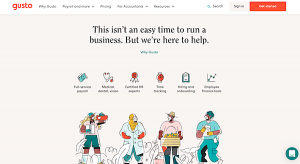
Career planning could be career limiting
“Seize any opportunity, or anything that looks like opportunity. They are rare, much rarer than you think.” — Nassim Nicholas Taleb
Taleb’s book, The Black Swan, examines the influence of highly improbable and unpredictable events that have massive impacts. A black swan symbolizes any occurrence, positive or negative, that produces powerful consequences. Yet by always being aware of the opportunities that exist in a black swan — either to succeed or avoid catastrophe — we can ensure optimal outcomes in our personal and professional lives. It’s all about recognizing and seizing opportunities, even when they run counter to the courses we’ve tried to map out for ourselves. In one part of the book, Taleb offers a strong example:
“Many people do not realize they are getting a lucky break in life when they get it. If a big publisher (or a big art dealer or a movie executive or a hotshot banker or a big thinker) suggests an appointment, cancel anything you have planned: you may not see such a window open up again.”
If there’s one constant in our lives, particularly in this highly fluctuating economy, it’s change. Our world is now defined by rapid, dynamic shifts on global scales. Searching for the catalysts and embracing their potential for growth is the key to overcoming obstacles and reaching the zenith of our strengths. And with that in mind, I’d like to offer some unconventional advice to professionals of all levels in the coming year: instead of trying to plan your career, plan on opening yourself to different opportunities that present themselves.
Nothing is certain except uncertainty
As fabled entrepreneur Marc Andreessen explained, “I believe a huge part of what people would like to refer to as ‘career planning’ is being continuously alert to opportunities that present themselves to you spontaneously, when you happen to be in the right place at the right time.”
There is no crystal ball that enables us to predict the future, even in the near term, these days. With unprecedented speed, industries are changing, companies are changing, the nature of work is changing, and our very roles in society are changing. Familiar brands may disappear soon. Consider retailers such as OfficeMax and American Apparel. These enterprises prospered and thrived during the last decade. However, advances in online shopping and computerized workplaces have caused these brands to struggle.
And who can foresee the future of Uber? It’s an extremely popular service, and has proved instrumental in pioneering the viability of the sharing economy. Yet driverless cars from tech juggernauts like Google and Apple are quickly becoming realities. In a few short years, Uber may be forced to utterly reimagine its business model or fade away. The point is, who really knows? More importantly, how do we chart our career paths amid all this flux? Perhaps we don’t. Instead, maybe we should be focusing on planning our career evolutions and co-creating our own destinies.
Plan your long-term career by living in the moment
Opportunities, like the best magic tricks, materialize and vanish in mere moments. Even those masters of prestidigitation can’t rely on sleight-of-hand alone: pulling offer the perfect feat often requires distracting the audience. In the real-world context, our singular focus on an established career plan becomes that distraction, blinding us to new opportunities that pop up right in front of us. Consider how many times you may have ignored seemingly unimportant situations that could have been the seeds to unimaginable success.
- A former executive leaves for a popular company experiencing explosive growth and asks you join.
- A senior leader in another department starts praising your work and seems to be courting you to switch over to her division.
- Decision makers at the company invite you to tag along for what seems like a casual lunch, yet could be an incredible platform to move up in the ranks or have your ideas considered.
- Your manager departs the company and the executives in charge begin soliciting your input on possible replacements.
- The brightest minds in the organization have been tasked with designing a new offering, and they approach you for some thoughts.
When you’re consumed with forging ahead in your career plans, simple invites to lunch may seem worth skipping. Conversations with managers in departments outside of yours may seem irrelevant to the ultimate goal you’ve envisioned. Yet, they may all form the foundation of tremendous new opportunities that could lead to success you haven’t considered. If your skills, qualifications and experiences translate, a new role in a different department could be the perfect fit for you. If you are given a chance to contribute and have your accomplishments reach higher levels of visibility, you could become the next big player in the enterprise.
Transform your career plan into an opportunity plan
When we’re young and fresh out of school, we’re generally more prepared to take vocational risks — moving to new places, working for startups and accepting positions that provide chances to gain experience rather than big salaries. As we mature, we tend to be more established, more focused on achieving our career objectives, and more averse to risk. However, this way of thinking could itself be riskier. The secret to evolving and attaining our goals lies in ongoing skills development. Every job we perform, every industry in which we work and every role we occupy contributes to our skills and qualifications.
Rather than pruning our skills down to only those we believe are relevant to the unshakable career plans we’ve created, I suggest taking a larger view — of reviewing all our skills as a portfolio. In doing so, we may realize that we have abilities more suited to a different position, company or industry. And that empowers us to consider changing direction and venturing into new opportunities for greater happiness and success.
Hard skills, such as expertise in accounting or software engineering, are transferrable. Even when perfected, they diminish with age; yet they’re also easily relearned. So a worker might be an expert today in his or her field, yet in two years that professional will need to go back and hone those functional skills or expand upon them. Soft skills, on the other hand, follow us throughout our lives and define who we are, how we interact and how we integrate and contribute to a company’s culture.
Too often, we find that professionals concentrate on matching hard skills to keywords in job descriptions, while disregarding vital soft skills that establish ideal cultural fits: attitudes, interpersonal aptitudes and inherent abilities in people skills, communication, collaboration and teamwork. Taking greater care to search for business environments that mesh well with your values, support needs, work-life goals and ongoing development leads to success.
Another strategic resource comes from the transformative growth of Massive Open Online Course (MOOC) programs. Educational analysts are recognizing the ability of MOOCs to turn the expensive and somewhat exclusionary privilege of college into a low-cost, on-demand and universal experience. Staffing industry experts have also discovered that MOOCs are rising to create new frontiers in sourcing, engaging and hiring skilled workers with brand-name certifications and degrees.
In fact, some pioneers in the staffing space are capitalizing on the full power of MOOCs by designing internal courses that address the skills their clients seek. Specialized classes for individual businesses deliver a powerful way to entice talent. If you’re looking to work at a specific company, a sponsored MOOC will help you complete courses tailored to those organizations. Moreover, the MOOC evolves into a sort of farm system, where pupils are scouted.
Consider freelancing or contracting
More professionals than ever before are moving into self-employment. For many, the ability to take charge of their schedules or earn extra income are strong motivators. However, contingent work also offers an unparalleled chance to gain new skills, learn new industries and connect with innovative employers. For businesses, tapping into the rich experiences and skills of freelancers creates an opportunity to assess each person’s work ethic, output, cultural fit, impact and likeability. Meanwhile, workers get to try out prospective employers. In our experience, these tours of duty have led to meaningful, lasting relationships.
Plenty of world-class organizations are actively engaging independent experts, such as contractors and freelancers, to help them solve business challenges. Sure, they may have those resources in house, yet they’ve decided that a new crop of workers needs to be sown. Talent who feel bogged down and underappreciated could be stars someplace else, responsible for their own successes and vocational destinies.
You, as a single individual, can make a tremendous and meaningful impact. You can uncover new paths in life that open to verdant fields of undiscovered opportunity. As 2016 nears and you prepare another annual resolution, think about following the calls of black swans rather than the perilous steps of ivory towers that may be distant mirages.
Business & Finance Articles on Business 2 Community(48)
Report Post






